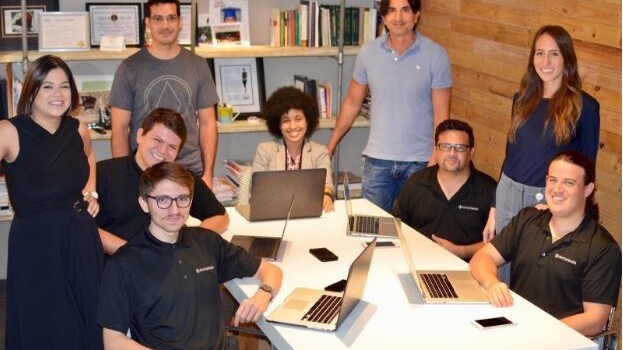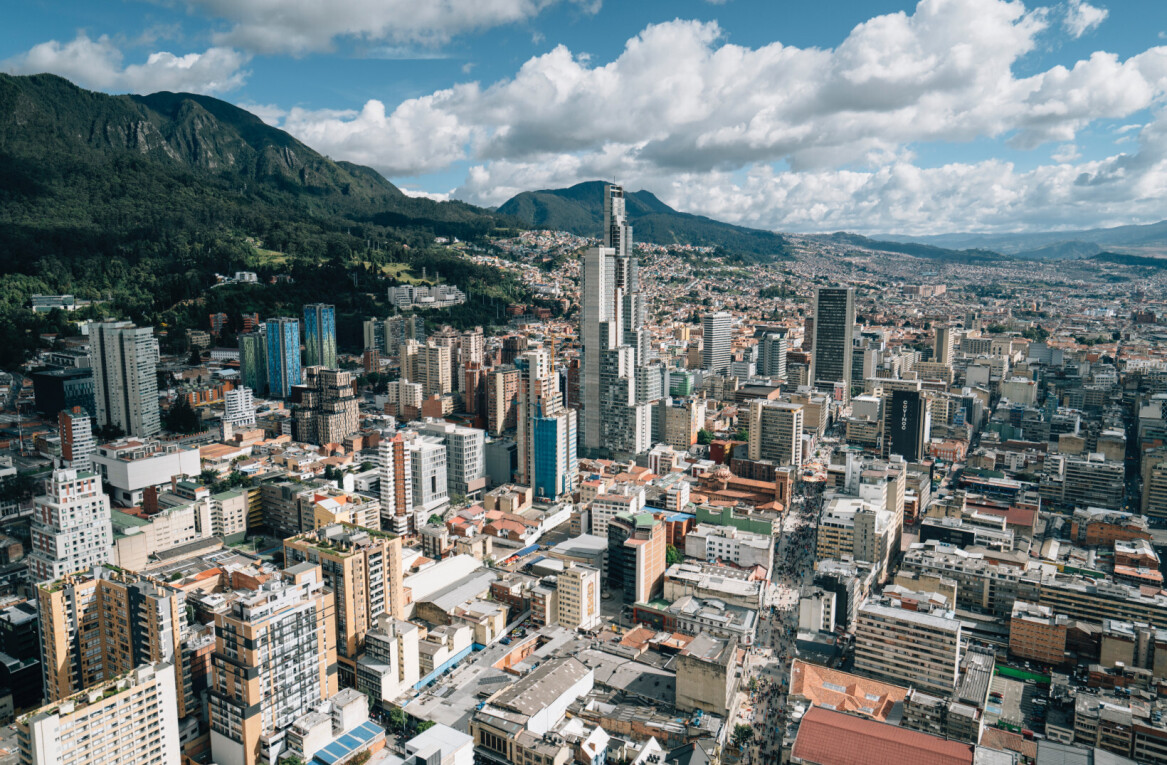
Puerto Rico has been in the news for all the wrong reasons recently. From the mayor being arrested on fraud charges, to the the effects of hurricane Maria and the local government being forced to seek a federal bailout for $123 billion in debts.
After such a terrible year, many would expect the overall mood on the island to be sombre. But as soon as you set foot outside San Juan’s Luis Muñoz Marín International Airport, you’re met with bright colors, wide smiles, and vibrant energy which characterize the “Island of Enchantment” and its friendly, optimistic people.
From the taxi driver who first picked me up, to the countless small business owners and local startup leaders I spent time with, there is a resounding sense of community, and a collective will to build things up much stronger, and more stable than they were before.
After recently travelling to San Juan, the capital city of Puerto Rico, many entrepreneurs have have asked me about the realities of doing business there. Despite the extensive challenges, Puerto Rico remains a great launchpad for startups to both the US and the Latin American markets, and many are following its recovery closely.
So, with recent events in mind, what’s the situation like on the island for foreign startup founders, or investors who want to startup in Puerto Rico?

Local startup communities
Coming up to a year after Hurricane Maria devastated the island, leaving millions without electricity, clean water, homes, and in many tragic cases their lives, day-to-day routine is returning to some semblance of normality at least in San Juan. The capital city is almost 100 percent operational today and has become the beating heart of the island’s recovery missions, as well as the local startup and entrepreneurial scenes.
But while the atmosphere is busy, and optimistic, Hurricane Maria remains an elephant in the room, and survival stories permeate most conversations.
As often seen in the wake of such catastrophic events, while government assistance was slow and sporadic in the aftermath of Maria, local communities across the island came together to fill the void. Many startup founders and tech workers both on the island and on mainland USA, gathered together on online forums and in person to see how local innovators could solve real problems for people on the ground. In the process of helping people, many local startups were also able to scale.
One of the reasons that startups were able to team up easily around humanitarian goals was the fact that there were a number of solid startup community groups, and organizations already in place.
Startups of Puerto Rico is a community founded in 2014 that aims to empower Puerto Rico’s brightest digital designers, engineers and entrepreneurs. Consisting of more than 20 startups and service providers, the organization describes itself as a “do-ocracy run by the tech community,” and runs a community news website and job portal online, as well as organizes local meetups and events.
The organization has close ties with a number of entrepreneurial groups, including Centro Para Emprendedores, a support organization for aspiring entrepreneurs, Code 4 Puerto Rico, an organization linked to Code for America, and Diseñado en Puerto Rico, an organization that aims to support local businesses and promote locally developed products.
Startup Grind San Juan is well known locally, along with homegrown organization Colmena 66, a community organization that links local SMBs and startups with regional resource partners, and Piloto Labs, a non-profit organization that organizes activities for the next generation of Puerto Rican entrepreneurs.
Between these different groups, there is no shortage of meetups, hackathons and startup events to choose from. In my experience, these groups are extremely welcoming of visiting entrepreneurs, and will go out of their way to facilitate connections and make recommendations.

Talent
Most of the startups I spoke with are based in San Juan, and have teams split between the mainland United States and Puerto Rico. According to the Pew Research Center, Puerto Rico lost approximately 64,000 citizens to the US mainland in 2014, more than double the net loss of 26,000 in 2010.
However, for its size Puerto Rico has historically produced a lot of homegrown tech talent. There are a large number of computer science and STEM courses for young people to choose from at local colleges, and the 2012-2013 Global Competitiveness Report from the World Economic Forum ranked Puerto Rico third for the availability of scientists and engineers.
As a result, highly technical roles which are usually hard to come by, or out of financial reach for startups in other ecosystems, are affordable, and available. An example of this is that startup Abartys Health, which raised $1.45M in funding this year and is one of Puerto Rico’s biggest success stories, was able to bring on not only one, but two physicists as its first two hires.
However, as highlighted in a recent TechCrunch article, while as many as 22,000 STEM students graduate each year in Puerto Rico, as many as 60-70 percent leave the island in search of better opportunities elsewhere.
With that in mind, a number of local student organizations are trying to encourage the next generation of tech-heads to stay close to home. AECC UPR is a student’s organization from the University of Puerto Rico which offers seminars and mentorship to help computer science students hone their skills; Code After Hours is a group which helps set up after school coding clubs in local schools; and HackPR is Puerto Rico’s biggest student hackathon that has been running since 2012.
#include <Girls> is a student run non-profit with the mission of encouraging women’s academic, social and professional development in Computer Science and STEM industries.
The government is getting involved too, having set up the Technology Transfer and Commercialization Office to help university students commercialize intellectual property, in the hope of creating a new generation of technical founders. And there’s Act 135 which offers financial support and services for young entrepreneurs who want to launch a business in Puerto Rico.
For those who don’t want to commit to a four year program, there are local coding bootcamps. For example, there’s Code Trotters Academy, which markets itself as the “first ‘hacker’ school in PR,” and the Caribbean Institute of Technology, which was set up by Anthony Delgado, the founder of NJ based Disrupt Technologies, who visited the island for humanitarian reasons before setting up the initiative.
And for the bedroom hackers, who don’t want to enroll in an official program, there’s an abundance of local coder meetups including the Docker Meetup, Ember.js Meetup, python group prPIG and the IGDA Puerto Rico group for game developers.
And with startups becoming more prominent in the Puerto Rican media and society post-Maria, one can only hope that more and more people will give tech a try, creating a whole new generation of potential technical founders, and high-quality employees.
For foreign companies, there are many benefits to hiring locally. According to Glassdoor, the average salary for a Information Technology role is $46,328 in Puerto Rico, which while higher than many Latin American countries, is still considerably lower than most tech hubs in the US. An added bonus is that almost all young adults in Puerto Rico are bilingual in both English and Spanish, which is attractive for startups wanting to target both the US and Latam markets, both of which are tantalizingly close.
Access to support and funding
While the government of Puerto Rico was criticized for its management of the Maria crisis, when it comes to boosting local innovation and attracting foreign players, they’ve been a lot more proactive.
Puerto Rico has been trying to attract back corporations who jumped ship in the mid 2000s, with a new series of tax incentives, which came into power in 2008, and offer, amongst other things, a fixed income tax rate of four percent for commercial manufacturers and companies exporting services from the island, and a 50 percent tax credit for research and development activity costs. But aside from attracting global tech companies like Infosys, HoneyWell, Truenorth, Rock Solid and Fusionworks, the government is keen on bolstering the growth of local and foreign startups on the island, too.
For the size of the country, and its population, there’s comparatively a lot of both private and public support for entrepreneurs and startups on the island.
The most notable is Parallel18, a government-backed accelerator supported by the Puerto Rico Science, Technology, and Research Trust, the Department of Economic Development and Commerce, and the Puerto Rico Industrial Development Company, which is led by Sebastian Vidal.
Since its launch, Parallel18 has managed to attract a good mix of foreign, and local startups to its five month acceleration program. When Hurricane Maria struck, it was in the middle of its fourth batch, which featured more than 30 startups from 13 different countries.
Aside from offering expert mentorship and helping startups scale, participants are given an equity free grant of $40,000 USD. Alumni who decide to stay on the island may also qualify for a follow-on fund from the Puerto Rico Science, Technology, and Research Trust that matches capital raised up to $75,000 USD.

There’s also assistance available from private investors and organizations, too. As a means of helping local businesses build themselves back up in the aftermath of Maria, local VC firm Guayacan launched a new fund for Puerto Rican businesses looking to redevelop.
Earlier finding seed funding was traditionally a challenge in PR, however the government recently set favorable new tax incentives in the hope of attracting more foreign Venture Capitalists and Angel investors. And it seems to be working, as last year US-based nonprofit venture capital network Venture Capital Alliance launched a $45M fund aimed to boost local entrepreneurship on the island.
For those startups who are bootstrapping, or have already raised funds, but are looking for a guiding hand, or new connections, coworking Piloto 151 — a partner of the renowned accelerator The Founder Institute — is a great place to meet local players who know the ropes. For startups in the social impact space, ConPRometidos are always looking to assist startups creating “innovative and sustainable solutions to community challenges.”
For anyone in need of assistance in finding local investors to fund their projects, Puerto Rico is the Answer, or PRANS for short, is a community of local business players from a range of sectors, who dedicate time each month to helping up and coming businesses in the region.
While the ecosystem in Puerto Rico will naturally need time to recover from the tough few years the country has had, things are looking bright, and the general mood is positive. Over my short time in San Juan, I met lots of engaged, motivated local entrepreneurs who were very keen to collaborate, and a surprising amount of foreign entrepreneurs, too. And with the island’s natural beauty, steady flow of talent, supportive government, and perfect location, more foreign founders, and investors, may find themselves exploring the blue waters on the Island of Enchantment and giving the local ecosystem the attention it deserves.
This article was Co-Authored by Craig Corbett
Get the TNW newsletter
Get the most important tech news in your inbox each week.




